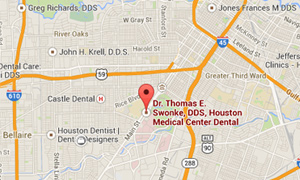An old expression equates a difficult task to “pulling teeth”. The reason stems from the fact that teeth are not meant to be pulled. However, when a tooth is so unhealthy that it endangers the neighboring teeth and gums with cavities and infection, a dental extraction is often the only course of treatment.
Dentists perform tooth extractions for a wide range of reasons. For instance, if a wisdom tooth becomes impacted and can not grow in properly, the tooth must be removed to prevent further pain and damage. Teeth that have been damaged due to injury or accident may require extraction so that they can be replaced with orthodontic appliances.
A simple extraction involves the removal of teeth visible within the mouth. The dentist places the patient under local anesthetic to numb the area around the affected tooth. The dentist will access the tooth with a metal tool to lift if from the gums, then he will grasp the tooth with forceps to pull loose the periodontal ligament that holds the tooth in the gum.
A surgical extraction includes a more complicated procedure. Patients with fractured teeth or damage below the gum line often must undergo a surgical extraction. The dentist often administers a general anesthetic for a surgical extraction, as the local anesthetic may not provide enough pain relief during the procedure. A surgical extraction may also require the dentist to break the affected tooth into several pieces to aid in the extraction process.
During the first 24 hours after an extraction, the patient will often experience pain, swelling and bleeding in the affected area. The dentist will prescribe pain medication and antibiotics to prevent infection. The patient will stay on a diet of soft foods and liquids for up to a week after the extraction to prevent damage during the healing process.
If you have severe tooth pain, you may need an extraction. Contact Houston Medical Center Dental to make an appointment today!



